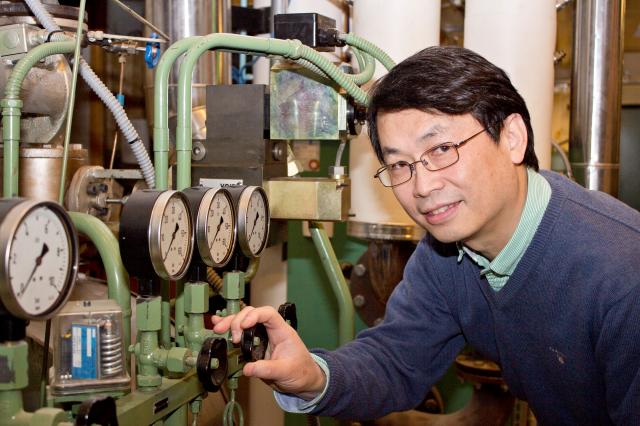【百家大講堂】第73期:Future Energy Systems: from resource conversion into smart integration
講座題目:Future Energy Systems: from resource conversion into smart integration
主 講 人:Prof. J. Yan(歐洲科學(xué)與藝術(shù)院院士、瑞典皇家理工學(xué)院和瑞典梅拉達(dá)倫大學(xué)首席教授、國(guó)際著名期刊《Applied Energy》主編)
時(shí) 間:2018年6月10日下午15:00
地 點(diǎn):中關(guān)村校區(qū)研究生教學(xué)樓5樓創(chuàng)新基地(電梯出口北側(cè))
報(bào)名方式:掃描下方二維碼
主辦單位:研究生院、機(jī)械與車輛學(xué)院

【主講人簡(jiǎn)介】

Dr. J. Yan is chair professor of Energy Engineering at M?lardalen University & Royal Institute of Technology, Sweden. He is director of Future Energy Profile. Prof. Yan's research interests include advanced energy systems; renewable energy; advanced power generation; climate change mitigation technologies and related environment and policy; CDM etc. Prof. Yan published about 400 papers including in Science & Nature Climate. Prof. Yan is the editor-in-chief of Applied Energy journal & editor-in-chief of Handbook of Clean Energy Systems. He is the Chair of International Conferences on Applied Energy. He is an academician of European Academy of Sciences and Arts, and serves as the advisory expert to the UN, EU, & ADB etc.
【講座摘要】
Energy systems have been in transition, extending their boundaries beyond the energy systems themselves. One of challenging issues is the intermittent power generation and mismatching of energy supply and demand over a time scale when high renewable energy penetration takes place. This calls for a new way to solve the challenging issues associated with new transitions of future clean energy systems with interdisciplinary and synthetic approach from not only the systematic overview, but also detailed components of clean energy systems. It needs to integrate the end-users load control with different energy saving approaches. It is location specific and highly tailored to serve its customers’ needs. Changing from resource conversion into the smart integration needs integration of energy with digitalization. Renewables, distributed generation, and smart grids demand new capabilities and are triggering new business opportunities, which is further stimulating the future development of the energy systems.
